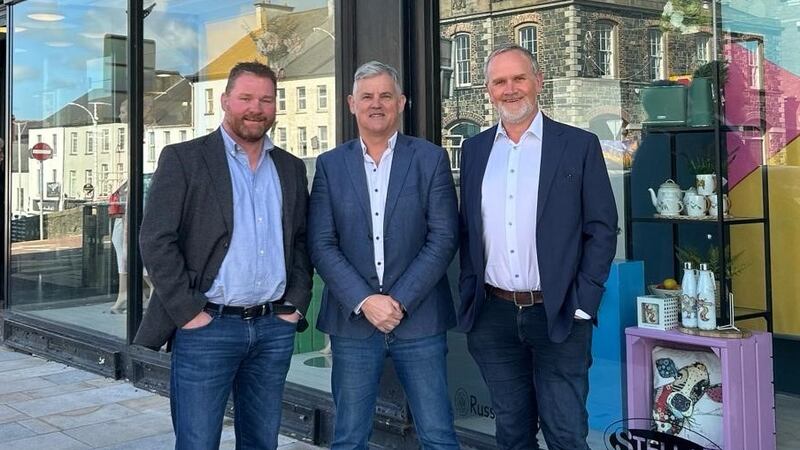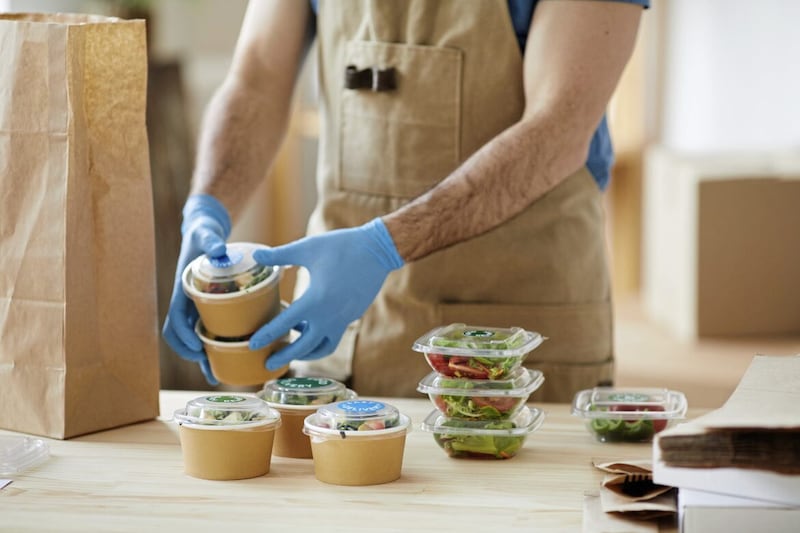ON the face of it, Northern Ireland has had a strong employment recovery. Indeed, last week we found out for the first time the region had surpassed its pre-downturn employment peak. This happened in the first quarter of 2016, and employment growth continued throughout last year.
In terms of the detail, we’ve seen a net gain of over 54,000 jobs during the last five years – that’s an increase of eight per cent.
Though as always with economists, there is a ‘but’. First of all, the UK as a whole surpassed its pre-recession jobs peak two years earlier than Northern Ireland.
And when we look beneath the surface, there is great variation between the performance of sectors; for instance, construction and manufacturing, which are major employers, still employ far fewer people now than they did before the downturn.
The services sector is where the most jobs have been generated. Indeed, services employment has never been higher.
But again, this is a vast sector with many sub-sections, and includes jobs that range from a barista to a barrister.
In the past, areas such as retail and food and drink outlets, have been the drivers of service sector employment growth. But in the economic context we now currently face, it is clear that these more consumer-sensitive sectors are not going to be the job-creators they once were – this is particularly the case for retail, which is also facing challenge from technology (eg online shopping).
Newer industries such as computer programming, which have been contributing more and more jobs in recent years, are going to have to be the main job-creators of the future. Indeed, the number of programmers in Northern Ireland increased in the past two years by around 1,800. That’s the total number of computer programmers there were in Northern Ireland 20 years ago. Back then, there was just one computer programmer for every 50 jobs in the retail trade, compared to one for every 11 today.
The scale of the challenge is evident though in the fact that in recent years. The food and beverage services and retail sectors have been creating three-to-four times this number of jobs as the IT sector – albeit that they are lower value jobs and a higher proportion of them are part-time.
Employment within the retail trade increased by over 40 per cent between 1997 and 2007. Overall, the last 10 years has been something of a lost decade for retail employment, however, this conceals a sharp recession post 2007 and a strong recovery over the past few years.
The food and beverage services sector (which includes cafes, pubs and restaurants) has fared even better, with employment up 55 per cent between 1997 and 2007, and 20 percent growth between 2007 and 2017. The past three years in particular have been a bumper period with total employment among these establishments having increased almost a quarter in just 36 months.
Anyone who has been walking along the high streets of Northern Ireland’s town and cities of late will see why, with the boom in eateries and coffee shops apparent for all to see. The Northern Ireland consumers have evidently become much more familiar with their macchiatos and flat whites. The coffee shop boom has been supported by ideal conditions; what has become known as the consumer ‘sweet spot’ - characterised by low inflation, falling food prices and utility bills and real wage growth - as well as by record visitor numbers to Northern Ireland.
How important has the sector been to job creation? Over 40 per cent of the net job gains in Northern Ireland last year were in the food and beverage service sector and retail. But times, they are a changing. The consumer ‘sweet spot’ is now firmly in the past. Inflation is back and rising at a faster rate than wages. Food and energy prices are on the rise again, putting a squeeze on consumers, particularly those on lower incomes. Those households reliant on benefits are also facing a multi-year freeze across a range of benefits which will erode their purchasing power.
At the same time, retailers and food and drink establishments’ costs are going up, due to the increasing prices of food and energy, but also the National Living Wage. And it is worth noting that past experience shows when inflation is high, job losses occur in the sector. In 2011, employment fell by over five percent. This is because these are amongst the first things people cut back on when their incomes are squeezed.
In the wider retail sector, we are already seeing clear signs of deteriorating conditions. Earlier this month for instance, furniture retailer DFS - the one that always seems to have a sale on - issued a further profit warning, which followed a previous warning and a 25 per cent drop in its share price. As we move into the summer sales season, retailers will start to cut their prices; many of them will also be looking to cut their staffing levels too.
So, the question is, has retail employment peaked? The answer is probably yes because in addition to the consumer squeeze, technology is disrupting the sector.
However, it is not all bad news. Cross-border retailing looks set to continue to benefit some areas of Northern Ireland, and overseas visitors and their wallets will continue to arrive on our shores.
But there is a big challenge for the high street to rethink its business model and for the economy to work out how it is going to rebalance away from overreliance on consumer spending and to have more focus on wealth-creators.
There is definitely some froth, but we have to try to view the cup as half full.
:: Richard Ramsey is Northern Ireland chief economist at Ulster Bank. Follow him on Twitter at @Ramseconomics
:: Next week: Paul McErlean








